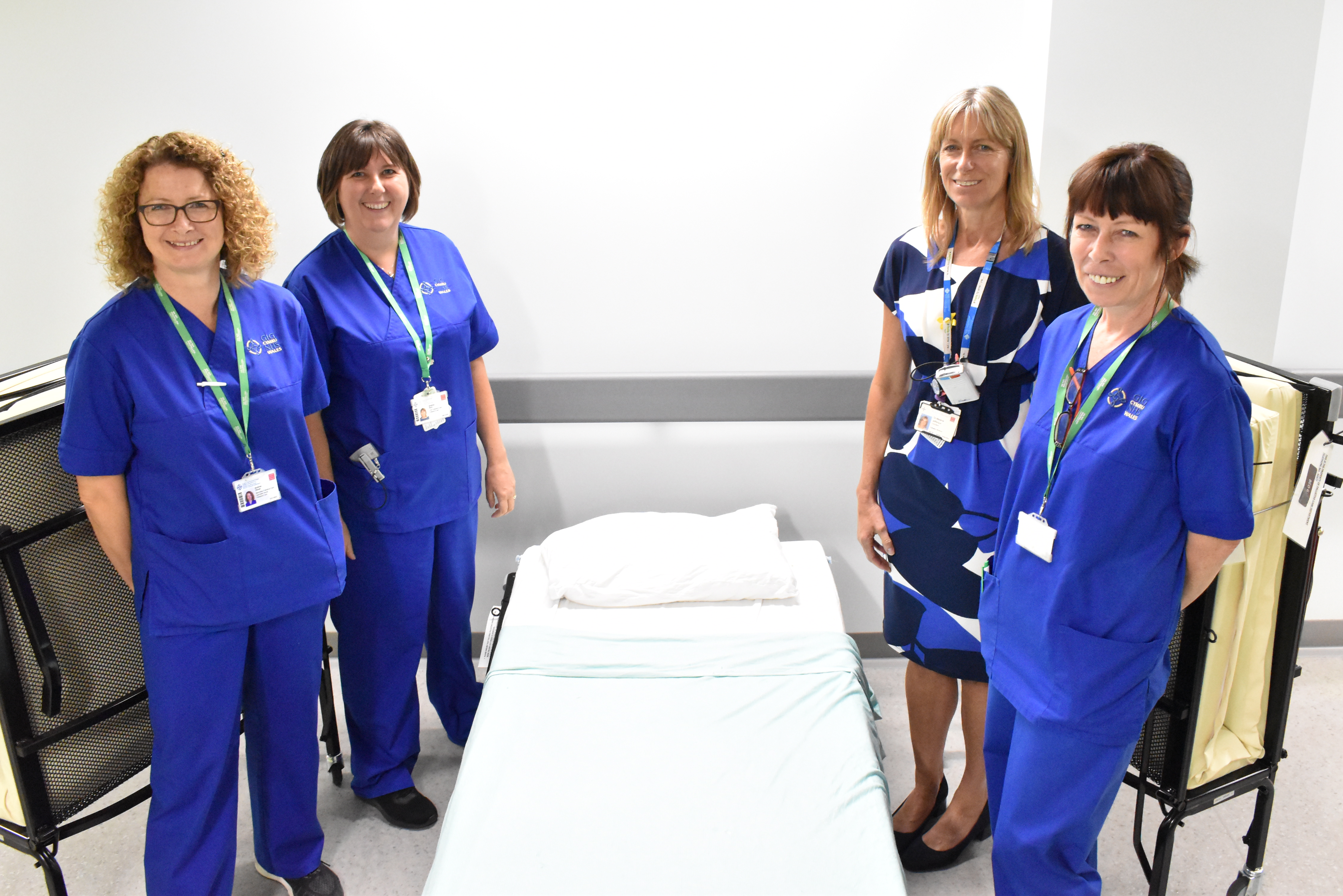
The Palliative Care team at Cardiff and Vale University Health Board have improved comfort for families of patients receiving end of life care in the acute hospital setting.
The team carried out the National Audit for Care at the End of Life (NACEL) which identified key areas which could be improved to make the patient and family experience easier at what is an already difficult time.
Following the audit the Palliative Care team have arranged for six ‘Z beds’ to be available for the use of families so they have somewhere comfortable to relax or sleep over-night during their loved ones last days rather than a hard backed chair.
Four ‘Z beds’ are now available to use at University Hospital of Wales and two at University Hospital Llandough. The beds can be folded up when not in use and transported to ward areas requiring them as needed.
The beds were funded through End of Life/Palliative Care Funds and the Patient Experience Endowment Fund as part of Cardiff & Vale Health Charity.
Dr Melanie Jefferson, Lead Consultant said “Many people choose to spend their last days at home but on some occasions this is unable to happen or the patient chooses to remain in hospital. By providing somewhere for families to rest, we can make a difficult time a little bit easier and it means that family members can remain at the hospital with their loved ones.
“This is just one aspect of the work we are doing as a team to improve the overall experience of patients and their families when they are receiving end of life care and we will be conducting an audit again this year to see the difference this work has made and to identify other areas for improvement.”
Feedback from the introduction of the Z beds has been that it is a welcome addition for families who now have somewhere to sleep or rest and can stay overnight with their loved ones in the hospital setting.
Other End of Life initiatives highlighted from the audit to improve the overall experience includes the development of comfort care packs by the patient experience department, increased education for all staff involved in delivering end of life care, a focus on improving mouth care and improving support and information for those important to the patient.
A walk through observations exercise from the Emergency Unit to the bereavement office and mortuary has also helped the team to identify areas that will improve the experience for patients at the end of life and their families who are admitted to the emergency areas, and this work will be fed into quality improvement programmes.


